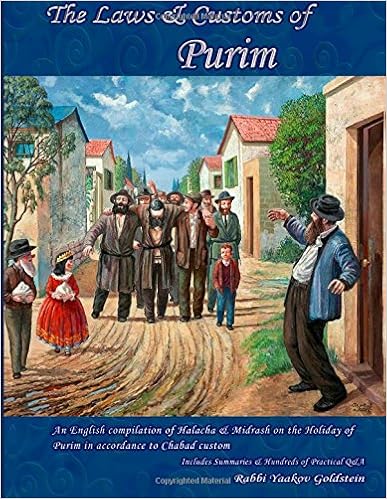This article is an excerpt from our Sefer

Buy me on Amazon.com
The reason behind sending Mishloach Manos: [1]
The reason why the Sages instituted sending gifts on Purim is disputed amongst Poskim. The following are the opinions and practical ramifications.
Opinion of Manos Levi[2]-Increase friendship:
Some Poskim[3] rule the purpose of Mishloach Manos is in order to increase in love and friendship amongst other Jews.
Terumas Hadeshen-Purim meal
Other Poskim[4] rule the purpose of Mishloach Manos is in order so every Jew has food to eat for the Purim meal.
Practical ramifications:
There are numerous practical ramifications of this dispute, as will be explained throughout the laws brought in this chapter.
- If the receiver does not accept the gift does the giver fulfill his obligation?[5]
- If the receiver is not home but was told he received Mishloach Manos does the giver fulfill his obligation?
- Must the receiver know the identity of the person who sent him Mishloach Manos?[6]
- Must the giver know the identity of the receiver?
- Must a married woman give Mishloach Manos?[7]
Final Ruling:[8]
One is to be stringent like both reasons and opinions and hence fulfill his obligation of Mishloach Manos in a way that satisfies all the reasons.
Q&A
Why is a blessing not recited before performing the Mitzvah of Mishloach Manos?
As it is possible the person will refuse to accept the gift, hence the gift must first be given to the person, and being it was already given one can no longer say a blessing.[9] Alternatively it is because we do not say a blessing over Mitzvos that are done between man and man.[10]
Sparks of Chassidus:[11]
The Mitzvah of Mishloach Manos was established in order to increase in love of one’s fellow Jew and Achdus Yisrael. The reason behind this emphasis specifically on Purim is because one of the claims of Haman that caused the evil decree was that we are a nation which is separate and spread out. Hence to battle this decree we emphasize Ahavas and Achdus Yisrael.
[1] See Teshuvas Chasam Sofer 196; Piskeiy Teshuvos 695/9
Opinion of Rama: See Chasam Sofer ibid that learns from the Rama’s ruling [695/4: If the receiver refused to accept the gift that he fulfills his obligation.], that the Rama rules like the Manos Levi and not like the Terumos Hadeshen.
[2] The Manos Levi was written by Rav Shlomo Alkabetz of Sefad, in the 1500’s. He is also the acclaimed author of the Shabbos hymn of Lecha Dodi that is sung amongst all Jewry on Friday night. The Sefer Manos Levi is a commentary on the Megillah that was written in honor of his father in-law and given to him as a gift.
[3] Manos Levi towards end, explained in Chasam Sofer ibid; See a similar explanation in Bach 695 [brought in Halacha 2 in footnotes] regarding why in his opinion if the receiver also fulfills the Mitzvah.
[4] Terumos Hadeshen 111
[5] According to the Manos Levi he fulfills his obligation, as he has shown him friendship. According to the Terumos Hadeshen he does not fulfill his obligation as he has not received anything for his meal. [Chasam Sofer ibid]
[6] According to the Terumas Hadeshen he fulfills his obligation. However according to the Manos Levi he has not fulfilled his obligation, as friendship has not been formed between the giver and receiver. [Kesav Sofer 141]
[7] The Chasam Sofer 196 explains the question as follows: According to the Terumos Hadeshen the main reason of Mishloach Manos is to increase in food for the Purim meal, hence since married women eat by their husbands they are exempt from Mishloach Manos. However according to the reason of the Manos Levi, that its purpose is to increase friendship, also married women would be obligated.
[8] Kesav Sofer 141; Piskeiy Teshuvos 695/9
[9] Kaf Hachaim 694/4 based on Teshuvos Harashba 1/18; Now although we rule that even if one refuses to accept the gifts the giver has nevertheless fulfilled his obligation, nevertheless since there are Poskim that argue we apply the rule of Safek Brachos Lihakel. [Piskeiy Teshuvos 695 footnote 58]
[10] Rambam Brachos 11/2
[11] Likkutei Sichos Purim Hosafos Vol. 2


Leave A Comment?
You must be logged in to post a comment.